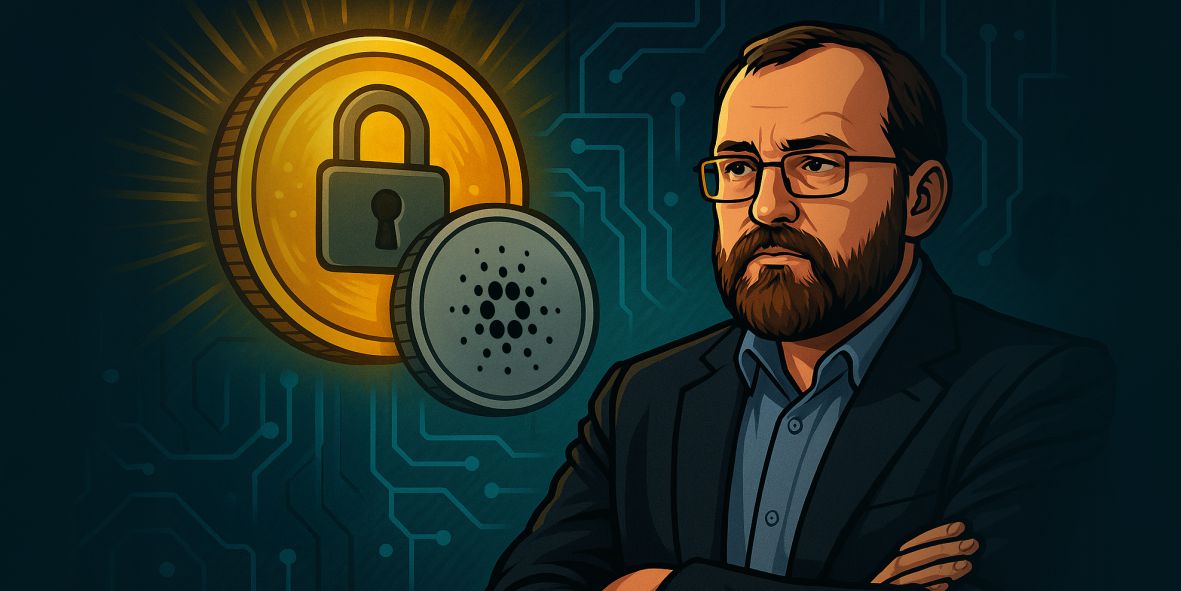Key Takeaways:
- Cardano may launch the first privacy-enabled stablecoin, offering user-controlled transaction visibility.
- Hoskinson criticized current stablecoins for lacking privacy protections.
- The stablecoin would use Cardano’s Midnight protocol to allow selective disclosure.
- Hoskinson called for global, bipartisan crypto regulation to support long-term industry stability.
Cardano founder Charles Hoskinson revealed plans for a privacy-enabled stablecoin during an episode of the “Conversations with Leaders” podcast, hosted by Sam North. In his speech, Hoskinson said that if the new stablecoin is rolled out, it could give users greater control over their financial privacy while still meeting regulatory requirements.
Privacy Within Regulatory Limits
According to Hoskinson, the Cardano ecosystem is uniquely positioned to launch the world’s first privacy-enabled stablecoin, which aims to balance personal privacy with compliance.
The new concept leverages Cardano’s evolving infrastructure, particularly through its Midnight protocol, which offers selective disclosure—allowing users to control who sees their transactions while enabling regulatory actions like freezing or auditing when necessary. “You can still do a seize and freeze regime, and you can still do all the other things to regulators,” Hoskinson stated.
“Maybe, just maybe, people don’t want to have a stablecoin where every time they buy something, it’s forever tracked by everyone everywhere,” he added, emphasizing the lack of privacy in conventional stablecoins
Positioning Within Broader Development Plans for Cardano
Hoskinson stated that this strategic move aligns with Cardano’s broader vision of becoming a leader in real-world assets (RWAs) and decentralized governance. By launching a stablecoin that protects privacy and still follows rules, Cardano could attract both big institutions and everyday users.
“If we have that capability, Cardano is probably gonna be one of the first ecosystems to do that,” Hoskinson said, arguing that this is more than a mere feature; it’s a potential future standard driven by global users’ increasing need for financial autonomy within legal boundaries.
Furthermore, the scarcity of privacy-focused financial tools could make this a key entry point for widespread adoption, according to Hoskinson.
During the interview, Hoskinson also addressed broader concerns beyond the stablecoin initiative. He spoke about crypto governance, regulatory reform, and the role Cardano aims to play in shaping the future of the industry.
Cardano Founder Advocates for a Functional Crypto Governance Framework
Hoskinson called for sweeping reforms in how crypto governance is handled at the U.S. federal level. Specifically, he criticized the ambiguous role of the so-called “crypto czar” and the lack of structure in advisory groups connected to policy formation.
He proposed a clear categorization of areas such as DeFi, NFTs, payment tokens, and smart contracts, along with a global advisory model involving regulators from Japan, Switzerland, the UAE, and beyond.
“If the idea is, ‘rush it out because we know all the Democrats are going to be against it,’ what stability do we have as entrepreneurs?” he asked, stressing the importance of bipartisan support, warning that rushing legislation without cross-party backing could undermine long-term stability.
In Conclusion
Hoskinson’s proposal for a privacy-enabled stablecoin highlights a growing focus on user privacy within regulatory constraints. The new concept points to a shift in how stablecoins might function, balancing transparency with selective control.







